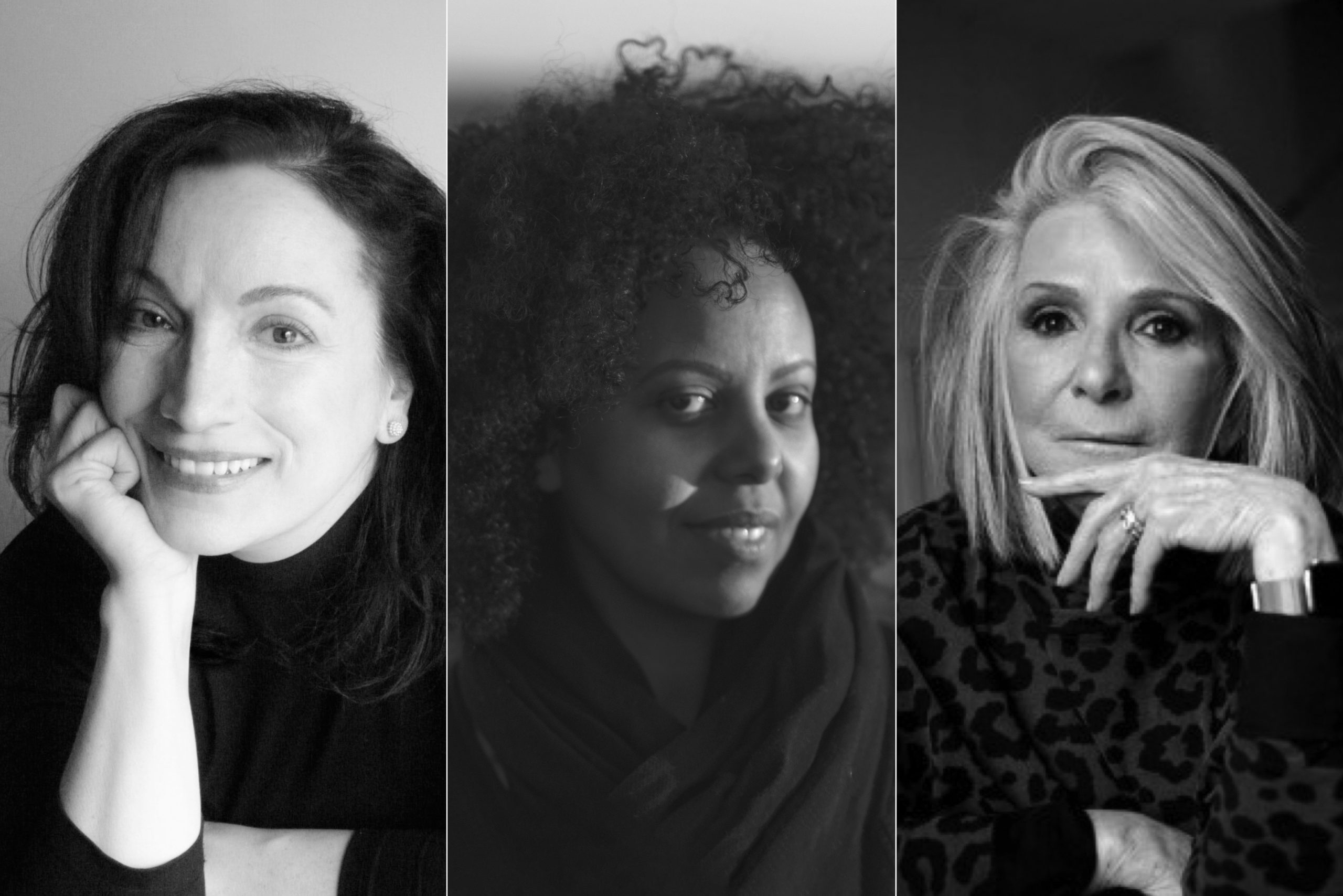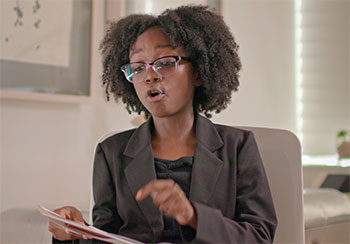Newsmakers: Trish Adlesic and Nazenet Habtezghi

Book challenges and bans rage on in the US at a record-setting pace. These efforts “fuel the flames of hate,” says award-winning filmmaker Trish Adlesic.
Adlesic is codirector and producer of The ABCs of Book Banning, a 2023 film that has been nominated for an Academy Award in the Best Documentary Short category. Sheila Nevins, famed documentarian and current head of MTV Documentary Films, led the project, and journalist-turned-filmmaker Nazenet Habtezghi also codirected.
American Libraries spoke with Adlesic and Habtezghi ahead of the 2024 Academy Awards, which will air 7 p.m. Eastern on March 10. They discussed their love of libraries, the importance of giving children’s voices a platform, and their hopes for the ongoing fight for intellectual freedom.
What made you want to work on a film about book banning?
Adlesic: Sheila Nevins gets up every morning at 7 a.m. and looks at TikTok. She’s the coolest 84-year-old I know, [and she found] 101-year-old Grace Linn, our inspiration for the film. Sheila saw Grace giving her statements [opposing book bans] before her Florida school board in Martin County. She was very taken by her act of courage. She called and texted me that clip, and how could you not fall in love with Grace’s activism? Sheila asked if I could go to Florida the next day and meet Grace, and it all began.
Habtezghi: I was aware of book banning but not to this degree. I worked with Sheila before on a previous project, and she brought us all together to make this film.
So much of the conversation around book bans is dictated by adults, but The ABCs of Book Banning centers children’s perspectives. What difference do you think it makes for the audience to hear from them?
Adlesic: It was so refreshing and relieving to hear their opinions. You never know with kids. They’re so raw and honest, which is what we love about them. But it was really exhilarating to hear how sophisticated and mature they were about all humanity.

We interviewed kids from Florida to New York. The majority of them felt the way the kids you hear in the film [did], that they couldn’t understand why two boy penguins couldn’t be gay with each other [in challenged children’s book And Tango Makes Three by Peter Parnell and Justin Richardson]. As Ridley [an 8-year-old featured in the documentary] says, “They don’t turn into werewolves.” It was so sweet, his perspective.
Habtezghi: Part of what this film became was really a love letter, a love poem, to books and reading. Reading opens up different worlds for children and their imagination. I was really inspired by some of the kids and how reading is part of who they are, how it has informed them even at this young age, hearing about their love for reading, and them asking the questions, “Why? What’s wrong with reading these books?”
We don’t give kids enough credit. We really don’t. They are brilliant. They just want to be heard, and they want to be able to enjoy their books.
While making this film, were there any books you remember reading in your childhood or other stages of your life that you were surprised to see are challenged, restricted, or banned?
Adlesic: I was very disheartened to see the graphic adaptation of the diary of Anne Frank banned. That was quite concerning. And Maus by Art Spiegelman. I read Nikki Giovanni’s poetry growing up, and I always was so activated by it. For her Rosa Parks book to be banned was just perplexing and really, really concerning.
But when you look at what the collective stories are about, we know why they’re banning the books. It’s discrimination. It’s racism. It’s a denial of the truth: to deny the Holocaust, to deny Black history, to shame and denigrate LGBTQ+ stories, like two penguins keeping an egg warm, you know?
Habtezghi: To see the work of Toni Morrison, Maya Angelou, and Nikki Giovanni [banned]—all of these books that are just incredibly rich and beautiful—it surprises me. While I understand a parent’s right to dictate what is appropriate at whatever age for their child, this blanket banning of books really speaks to where we’re potentially headed.
You’re never too old and you’re never too young to fight for your democracy, to fight for your rights, and to fight for your right to read.Nazenet Habtezghi
What do you think it will take to see these book bans go away?
Adlesic: I think using the film as a tool to shed light and community protests are very effective. Organizations like PEN America, ACLU, and the National Coalition Against Censorship [are] in the trenches, but it costs money to sue these jurisdictions. Many of the authors are now participating in lawsuits. There’s a multifaceted approach to intervene on this.
Everybody should respond in the way they know how and the way that they can best participate. But it does take social action, it takes movement, for this to stop. It doesn’t happen without a fight.
Habtezghi: As Sheila was ignited by this, and we’ve been ignited, we want to ignite others to really engage in activism. Get involved in your school district meetings. Take your children. Part of what this film does is show, through Grace and the kids, that you’re never too old and you’re never too young to fight for your democracy, to fight for your rights, and to fight for your right to read.
What does it mean to you to be nominated for an Oscar?
Habtezghi: Awards, it’s like icing on the cake. The true award is being able to make these films, being able to stand up for things that we believe in, having people watch these films and be ignited just as we were ignited. It’s an honor, but it’s about being able to make this film.
Adlesic: I was nominated once before for a documentary called GasLand. We were fighting the dangers of fracking, and what that nomination did for the issue was profound. So, for me, the nomination really is so exhilarating, because of the platform it presents for this very important issue.
What role have libraries played in your lives?
Adlesic: Libraries were very important to me as a kid. I’d go to the library to do my homework, and I loved librarians. My whole academic life, it was my go-to hangout spot. I liked to befriend librarians, because they would help me find what I needed easier than I might have found on my own.
Habtezghi: I have a deep love for librarians. I grew up in Dallas, and in my elementary school, we had a library with a librarian, so the idea of not having access to books is such a foreign concept to me. I was introduced to so many different types of books as a kid. English was actually a second language for me, so I really learned a lot of the English language through my experiences as a child in my school library.
That is something that I always wanted my daughter to have. We all have our Brooklyn (N.Y.) Public Library cards. My daughter is 9 years old. That’s where she does her homework with her friends. The library is a big part of our genetic makeup as a family and me as a person.
Source of Article